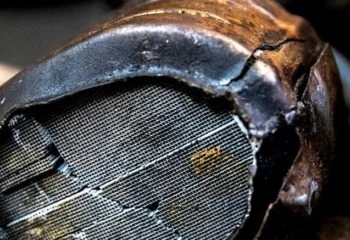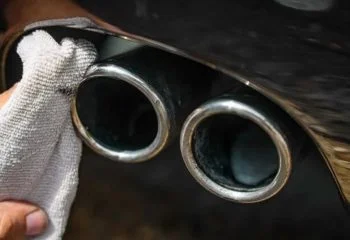If you’re like most people, the catalytic converter on your car is one of its most valuable components. It’s not surprising then that catalytic converter theft has become increasingly common in recent years.
But which cars are least likely to have catalytic converter stolen? According to a recent study, there are certain vehicles are less likely to be targeted by thieves than others.
So if you’re worried about your car being a target, be sure to read on for the top five cars that are least likely to have their catalytic converters stolen.
What's in this post?
Why do thieves steal catalytic converters?
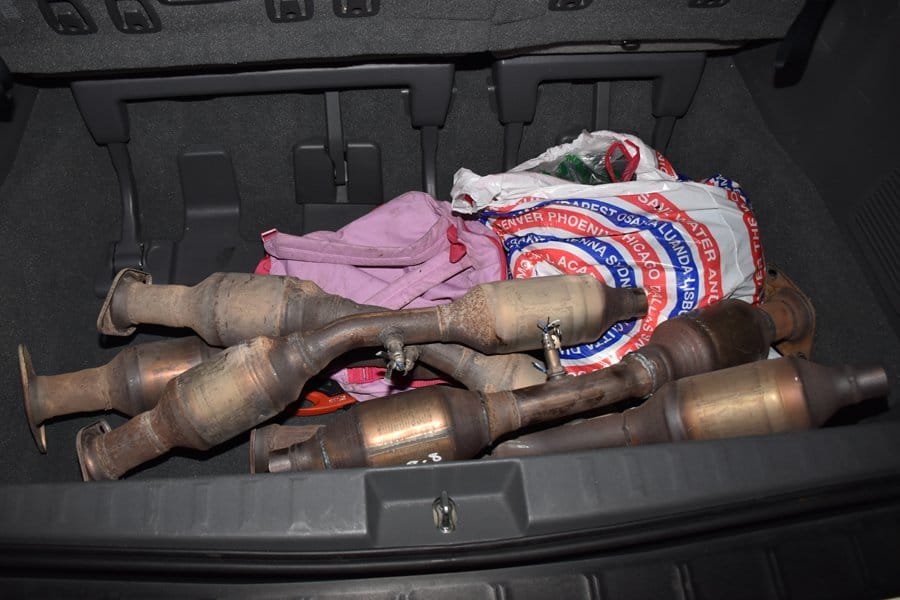
Before we get into the cars that are least likely to be targeted, it’s important to understand why thieves are after them in the first place.
Catalytic converters contain precious metals like platinum, palladium, and rhodium that can be sold for a high price. In fact, the value of these metals has increased so much in recent years that thieves are willing to take the risk of stealing them. You can see how much Platinum, Palladium, Rhodium in catalytic converters here.
What’s more, catalytic converters are usually easy to access and remove, which makes them an attractive target for thieves looking for a quick score.
Which cars are least likely to have catalytic converter stolen

By Brands and Models
Ford, Nissan, Chevy, Mazda, Jeep, Hyundai, Dodge, Subaru and Chrysler vehicles are the least likely to have their catalytic converters stolen, according to the National Insurance Crime Bureau (NICB).
The report states that these car models are equipped with technology that makes it more difficult for thieves to steal the catalytic converter.
For example, some of these car models have sensors that detect when the catalytic converter is being removed and set off an alarm.
Additionally, some of these car models have a locking device that makes it more difficult for thieves to remove the catalytic converter.
Finally, some of these car models have a tracking device that can be used to locate the stolen catalytic converter.
The Ford F-250 Super Duty had the lowest rate of converter theft in 2020, with just 12 reported incidents. The Nissan Frontier and Chevy Silverado 1500 tied for second place, with 16 reported thefts each.
The Mazda CX-5 was fourth on the list, with 17 reported thefts. The Jeep Wrangler rounded out the top five, with 18 reported thefts. .
Diesel Vehicles
Diesel vehicles are also less likely to have their catalytic converters stolen. Diesel vehicles are less likely to have their catalytic converters stolen for a few reasons.
First, diesel engines run at a higher temperature than gasoline engines, so the catalytic converter is less likely to contain valuable metals that can be sold for scrap.
Second, diesel vehicles are less common than gasoline vehicles, so there is less of a market for stolen catalytic converters.
Finally, diesel vehicles typically have thicker exhaust pipes than gasoline vehicles, making it more difficult to remove the catalytic converter without damaging the vehicle.
Some models of diesel vehicles are less likely to have their catalytic converters stolen. These models include the Ford F-250 Super Duty, the Chevy Silverado 2500 HD, and the Ram 2500.
These vehicles have a higher ground clearance, making it more difficult for thieves to access the catalytic converter. In addition, these models also have an anti-theft device that helps to deter would-be thieves.
As a result, owners of these vehicles can be assured that their catalytic converters are less likely to be targeted by thieves.
Cars Produced Before 1974
Another group of cars that are less likely to have their catalytic converters stolen are those that were produced before 1974.
These vehicles do not have catalytic converters because they were not required by law at the time.
As a result, thieves are less likely to target these vehicles when looking for a catalytic converter to steal.
Even though these vehicles do not have a catalytic converter, owners should still be aware of the possibility of theft.
Some thieves may target these vehicles in an attempt to steal other parts, such as the exhaust system or engine parts.
To help deter thieves, owners of these vehicles can install an aftermarket security system. This will help to make it more difficult for thieves to steal parts from these vehicles.
Cars have CAT installed in the engine chamber
One reason why cars with CATs installed in the engine compartment are least likely to have their catalytic converters stolen is that the converter is less accessible in this location.
Thieves often target catalytic converters because they contain valuable metals, such as platinum and palladium. However, if the converter is difficult to reach, thieves are less likely to attempt to steal it.
As a result, cars with CATs installed in the engine compartment tend to be at less risk of catalytic converter theft.
Cars use bead converters
Another reason why cars are less likely to have their catalytic converters stolen is that many newer models use bead converters.
Bead converters are made of ceramic beads that are coated with a catalyst. These beads are much harder than traditional catalytic converters, making them more difficult to break apart and steal.
As a result, cars that use bead converters are less likely to be targeted by thieves looking for catalytic converters.
Electric cars
Finally, electric cars are also less likely to have their catalytic converters stolen. This is because electric cars do not have catalytic converters.
Electric cars produce zero emissions, so there is no need for a catalytic converter. As a result, thieves are not interested in stealing the converter from these vehicles.
Even though electric cars do not have catalytic converters, owners should still be aware of the possibility of theft.
Some thieves may target electric cars in an attempt to steal other parts, such as the battery or charging equipment.
Useful read about CAT: What are symptoms of clogged catalytic converter?
What to do if your catalytic converter is stolen
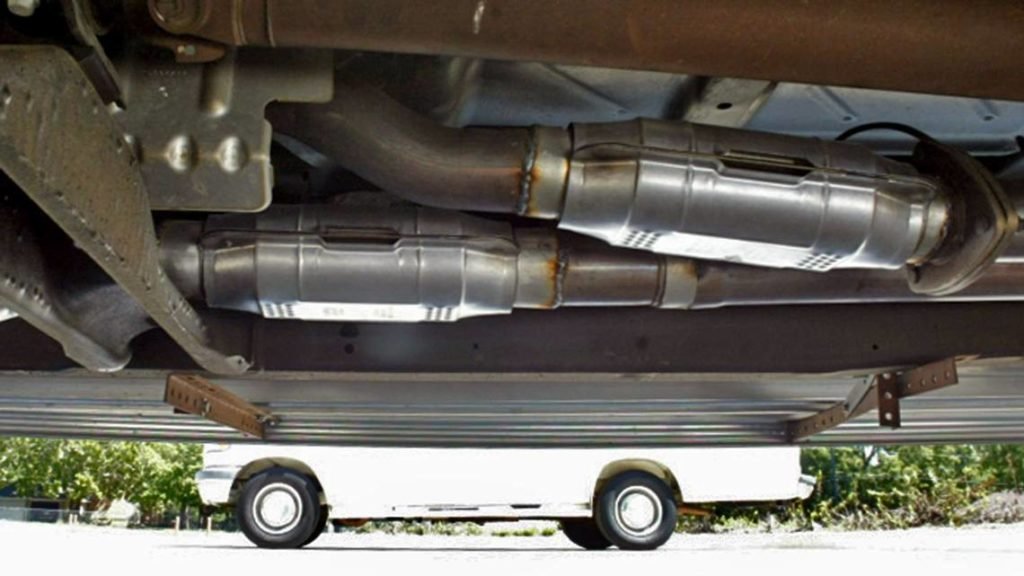
If your catalytic converter is stolen, the first thing you should do is file a police report.
Be sure to include as much information as possible, such as the make and model of your vehicle, the location of the theft, and any surveillance footage you may have.
You should also contact your insurance company to see if your policy covers the cost of replacing the converter. In some cases, comprehensive coverage may apply.
Once you have taken these steps, you will need to take your vehicle to a mechanic to have the converter replaced.
This can be a costly repair, but it is essential to maintaining the safety and emissions performance of your vehicle.
How to protect your catalytic converter from theft
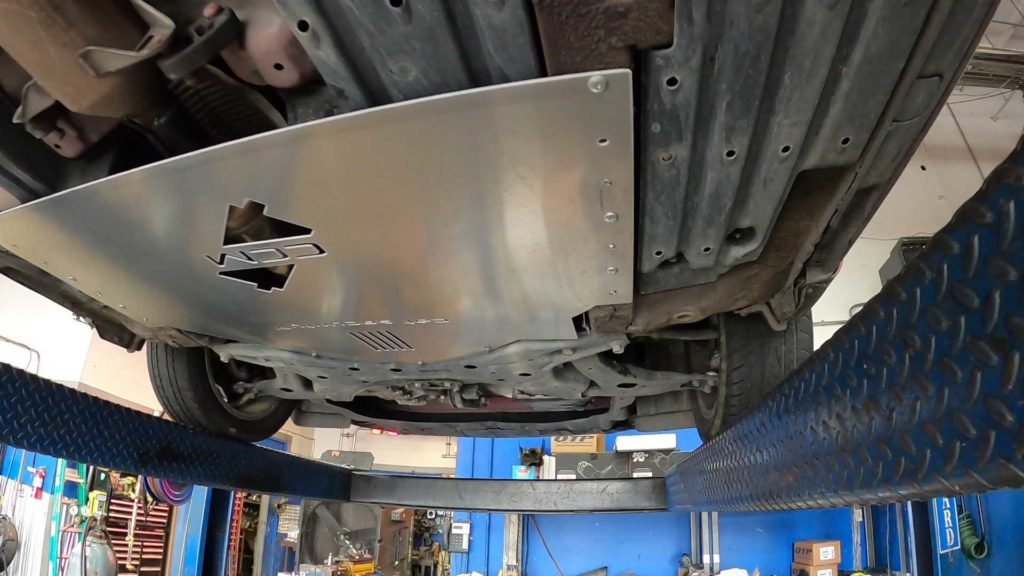
There are a few things that owners can do to help protect their cars from catalytic converter theft. Check if your car is on the list of cars that are most likely to have catalytic converter stolen
Choose safe place to park
One of the best things owners can do is to park their car in a safe location.
Parking in a well-lit area or in a garage can help to deter thieves.
Additionally, parking your car close to a building or other cars can make it more difficult for thieves to access your catalytic converter.
Consider an aftermarket security system
Another way to help protect your vehicle is to install an aftermarket security system. Many of these systems include features that make it more difficult for thieves to steal parts from your car.
For example, some security systems include sensors that detect when someone is trying to break into your car.
Other systems include alarms that sound when someone tries to break into your car. These features can help to deter thieves and make it more difficult for them to steal your catalytic converter.
Paint the converter
One way to make your catalytic converter less attractive to thieves is to paint it.
Thieves are often looking for converters that are made of metals like platinum and palladium. Painting your converter can help to make it less valuable and less appealing to thieves.
Additionally, painting your converter can help to make it more visible, which can deter thieves from trying to steal it.
Engraving license plate number onto catalytic converter
Another way to help identify your catalytic converter if it is stolen is to engrave your license plate number onto the converter.
This can help police to identify your converter if it is found. Additionally, it can help you to prove that the converter belongs to you if it is recovered by the police.
FAQs
Why are Toyota catalytic converters stolen?
One of the main reasons that Toyota catalytic converters are stolen is because they contain precious metals like platinum and palladium.
These metals can be sold for a high price, so thieves are often attracted to them. Additionally, Toyota cars are often targeted by thieves because they are popular and easy to find.
How much does it cost to replace a stolen catalytic converter?
The cost of replacing a stolen catalytic converter can vary depending on the make and model of your vehicle.
In some cases, the cost can be as low as $500. In other cases, the cost can be more than $2000.
What cars are the easiest to steal catalytic converters?
Some of the easiest cars to steal catalytic converters from are those that are high off the ground.
This includes SUVs, trucks, and vans. These types of vehicles often have converters that are easy to access and remove.
Can I drive without a catalytic converter?
Yes, you can drive without a catalytic converter. However, it is important to note that your car will not be as fuel efficient and it will produce more emissions. Additionally, your car may not pass emissions testing if it does not have a catalytic converter.
Which cars are hardest to steal catalytic converters from?
There is no one type of car that is the hardest to steal catalytic converters from.
However, some models that are less often targeted by thieves include Chevrolet Silverado, Toyota Tacoma, and Ford F-150.
What states require catalytic converters?
All 50 states in the US require catalytic converters.
What year cars need catalytic converters?
All cars manufactured after 1975 are required to have catalytic converters.
Can I sell my catalytic converter?
Yes, you can sell your catalytic converter. In fact, many people choose to do this because the converters contain precious metals like platinum and palladium.
Can I install my own catalytic converter?
Yes, you can install your own catalytic converter. However, it is important to note that this is a complex process and it is best to leave it to a professional mechanic.
What is the difference between a pre-catalytic converter and a main catalytic converter?
A pre-catalytic converter is a device that is installed in the exhaust system of a vehicle in order to reduce emissions.
The main catalytic converter is located downstream of the pre-catalytic converter and provides further reduction of emissions.
Both types of converters work by converting harmful emissions into harmless gases. Pre-catalytic converters are typically made of ceramic or metal, while main catalytic converters are usually made of platinum or palladium.
Main catalytic converters are more expensive than pre-catalytic converters, but they are also more effective at reducing emissions.
To sum up
Catalytic converter theft is a problem that affects many drivers. However, by understanding which cars are least likely to have catalytic converter stolen, you can take steps to protect your vehicle and reduce the chances of being a victim of this crime.
The cars least likely to have catalytic converters stolen are those that are most difficult to remove and sell.
We hope this information will help you protect your car and its catalytic converter from being stolen.
If you are looking for a car that is less likely to have its catalytic converter stolen, consider purchasing one of the models on our list.




